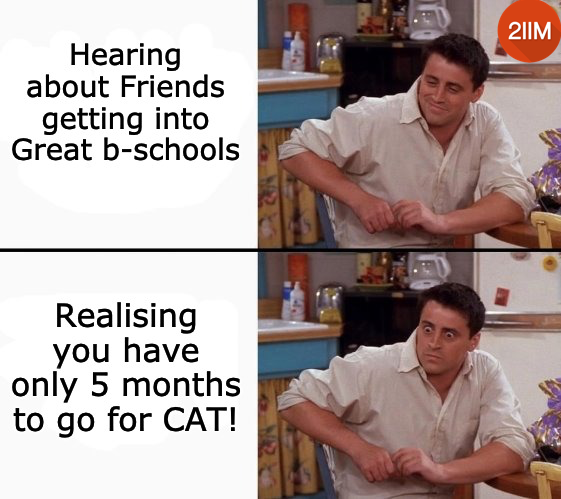CLAT Legal Reasoning
As the name indicates, CLAT Legal Reasoning section has a distinct element of
law. To crack these questions, ideally, a candidate has to keep reading any news
and opinion articles from at least one newspaper. A basic idea regarding the
Current Affairs of legal issues will drastically improve the reading speed and
comprehension. Though deeper understanding of law is not mandatory, keeping
oneself abreast of the current happenings will prove to a competitive edge.
The passages have been selected carefully to encompass a legal context in them.
As with the CLAT Logical Reasoning section and the CLAT English Language
section, adequate attention has been given to ensure the passages are from a
range of topics. Needless to say, the questions are pegged exactly at the level of
difficulty of CLAT, with an eye on the samples published by the Consortium of
NLUs.
Enough said. In for some serious Legal Reasoning? Let’s get cracking!
-
What does the phrase “ostensibly out of a concern for national security” convey in the sentence ‘These moves were made ostensibly out of a concern for national security, with the aim of thwarting terrorism.’?
- National security was the stated reason for restriction, not the real reason.
- The move shored up India’s national security and came at just the right time.
- Terrorism is the primary threat against which these 4G restrictions have been put in place
- Government should be given complete freedom to enact any law when it concerns shoring up national security.
-
In which of the following instances is the reasoning similar to the second of the two arguments outlined by the petitioner?
- When data points out that wearing helmets reduces road-accident deaths, wearing helmets should be made compulsory
- While acting in the interest of national security the least restrictive action should be followed
- Data suggests that nations with wider access to health insurance have higher life expectancies – so India should make health insurance compulsory for its citizens.
- The death penalty should be banned as there is no link between enforcing death penalty and having a lowered crime rate.
-
Which of the following, if true, would most weaken the petitioner’s arguments?
- When it comes to preserving national security, there is limited need to having transparency towards citizens
- Although the internet is a nifty tool to dispel fake news, the dispelling usually happens much after the news has spread far and wide – primarily thanks to the internet.
- Blanket internet shutdowns work far better than partial shutdowns as technological workarounds are always possible in the case of partial shutdowns
- Loss of life or livelihood has been minimal due to the restrictions that have been put in place.
-
In 1998, Ram Manohar was arrested on a Friday evening at his residence and kept in custody for 14 days under the TADA act.
- This arrest is illegal as Ram Manohar was not told why his freedoms were curtailed
- The government needs to communicate its reasons only if large populations are involved, there is no need to explain arrest to an individual
- National security is paramount, and the police can arrest any individual who threatens national security
- The arrest is legal as long as Ram Manohar was told he was being held in custody under the TADA act.
-
The concept of proportionality is used as a criterion of fairness and justice in statutory interpretation processes, especially in constitutional law, as a logical method intended to assist in discerning the correct balance between the restriction imposed by a corrective measure and the severity of the nature of the prohibited act. If the supreme court applied the concept of proportionality, which of the following could be its logical response?
- Internet is a luxury commodity and any restriction on it cannot be considered crippling.
- Rescind the blanket shutdown and suggest that the government resort to a more targeted approach to introducing restrictions
- Dismiss the petition as there is little wrong with what the government has initiated.
- Remove the ban and reinstate complete internet access to the entire region immediately.
-
The ban on untouchability should be guided by which of the following legal frameworks?
- Article 25
- Article 26
- Both article 25 and 26
- Neither of the two – Article 25 & Article 26
-
A new religion, Alpha, has this practice of the first child in each family being sent to a religious school to learn the practices of Alpha. The religious school demands that all entrants join the school at the age of 4 and stay there till they complete their education by the age of 24. Post this the student would be allotted one of the schools Alpha runs where the student should be attached to till the age of 60, whereupon the student should retire to the Himalayas. Students should dedicate their lives to Alpha and disown their own families. Supreme Court receives a petition from adherents of Alpha requesting that this practice be banned.
- The supreme court does not interfere as Article 26 explicitly states guarantees the rights of religions
- The Supreme Court does not intervene as this is an essential tenet of religion Alpha
- The Supreme Court does not intervene as Article 25 protects the rights of any individual to follow any religion
- The Supreme Court intervenes in order to protect young children from being oppressed and excluded from normal life
-
The practice of Sati, one where the wife of a deceased person joins him in the pyre could have been banned in India based on which of the
following?- Article 25 – the woman’s individual right to life cannot be sacrificed
- Article 26 – Religious norms are bound to change over time.
- Constitutional provisions that protects individuals from oppressive social practices
- Reform of the Hindu religion that slowly eradicates regressive practices
-
The supreme court has struck a balance ‘by recognising that it is only those practices that are “essential” to religion that enjoy constitutional protection’. What could be the biggest issue with this approach?
- Almost all practices in a religion are essential to it.
- If the Supreme Court affords constitutional protection to one religion, it has then to offer it to all religions/denominations
- The Supreme Court will not have the capability or authority to determine which practices are essential to any religion.
- It is impossible to strike a balance between cultural autonomy and individual freedom
-
The Indian judicial system has banned the practice of untouchability in the Hindu religion. What does this convey to us?
- The Supreme Court needs to identify objectionable practices in other religions and ban them as well.
- Practice of untouchability is not essential to the idea of leading life as a Hindu
- The ban is constitutionally untenable as it goes against Article 26.
- Banning untouchability is merely the first step, the Supreme Court will now take efforts to dismantle the caste system in the Country.
CLAT Legal Reasoning: Internet and National Security
To begin with, this move to restrict 4G Internet in the region was part of an array of measures limiting communications and movement. These moves were made ostensibly out of a concern for national security, with the aim of thwarting terrorism. The blockade though, imposed as it was indiscriminately on the whole region, was challenged in the Supreme Court, in Anuradha Bhasin v. Union of India (2020).
The petitioner there made two primary arguments. First, she pointed out that the government had refused to make public its orders blocking the Internet. This, she said, violated a basic tenet of the rule of law: that people have a right to know why their freedoms have been constrained. Second — and more substantively — she argued that empirical evidence demonstrated that there was no link between shutting down the Internet and the state’s objective of protecting security. Indeed, available materials pointed the other way: that the Internet was a valuable tool that could be used to counter the spread of incendiary rumours and fake news. Moreover, the government had at its disposal less restrictive options, such as the blacklisting of specific websites and targeted surveillance measures. It is unclear if these alternatives were even considered. Thus, the petitioner claimed that there was no justification for a blanket Internet shutdown that impacted a territory of eight million people, a vast majority of whom had nothing to do with terrorism.
CLAT Legal Reasoning: Individual Rights and Communities
Within the Constitution of India, there are two impulses that may, at times, come into conflict with one another. The first impulse recognises that India is a pluralist and diverse nation, where groups and communities — whether religious or cultural — have always played an important role in society. Following up on this impulse, the Constitution recognises both the freedom of religion as an individual right (Article 25), as well as the right of religious denominations to manage their own affairs in matters of religion (Article 26). The second impulse, on the other hand, recognises that while community can be a source of solidarity at the best of times, it can also be a terrain of oppression and exclusion. The Constitution, therefore, expressly provides for the possibility that there may be times when members of religious and cultural communities may need to be protected from authoritarian and oppressive social practices. Thus, both Articles 25 and 26 are subject to public order, morality, and health; and further, Article 25 is also subject to other fundamental rights guaranteed by the Constitution, and to the state’s power to bring in social reform laws.
How then do we strike a balance between respecting the autonomy of cultural and religious communities and also ensuring that individual rights are not entirely sacrificed at the altar of the community? Over the years, the Supreme Court has attempted to do so by carving out a jurisprudence that virtually allows it to sit in theological judgment over different practices. It has done this by recognising that it is only those practices that are “essential” to religion that enjoy constitutional protection. Any other ritual is seen as secular and amenable to the state’s interference.



CAT Coaching in Chennai
CAT 2021
Enroll at 49,000/-
44,000/-
Online Classroom Batches Starting Now!

